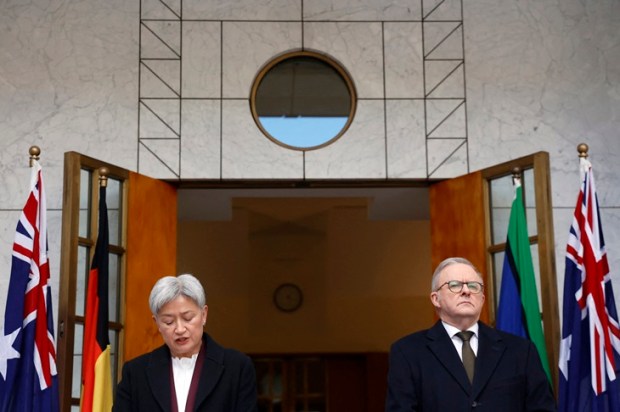‘Peer-reviewed’ is not interchangeable with ‘established fact’ or ‘beyond question’. It used to be an acknowledgement that others in the profession had read a scientist’s work and generally agreed that its reasoning looked sound and its assumptions ostensibly correct. Peer review offers no guarantee that the claims were submitted to rigorous testing or that the workmanship of the author was sound.
Climate and environmental science are among the most wishy-washy of all the sciences. Due to an inability to prove many of its more outrageous claims with physical evidence, it has relied on the qualification of ‘peer review’, consensus, and the wholly unsuitable standard of computer modelling.
It serves to remember that the greatest missteps in scientific history were ‘peer reviewed’ and upheld by a consensus of the powerful be that the Church, Parliament, or the scientific institution afraid of embarrassment. Everything from the movement of the Earth around the sun to the secrets of our biological evolution were suppressed by those with money and power who did not want the authority of ‘science’ to damage their social reputations.
This would not be such a problem if the scientific community remained free to challenge research findings where dissenting scientists act as the natural check and balance to an otherwise problematic system.
Professor Peter Ridd’s dismissal from James Cook University for his work challenging the health of the Great Barrier Reef – in particular his statement that the reef was actually fine – revealed the shackles locking the Australian scientific community to Climate Change dogma. Any suggestion that the Great Barrier Reef was not, in fact, dying would call into question the necessity of generous government grants handed to universities, research boards, and international scientists along with the half-billion dollar grants thrown at the reef industry.
Heaven forbid the reef is thriving! For scientists, this is terrible news.
Recently, a 2014 article Chemically mediated behavior of recruiting corals and fishes: A tipping point that may limit reef recovery in Science was retracted after one of its authors and prominent University of Delaware scientist Danielle Dixson was found guilty of fabrication and falsification by an investigative panel. Three of her papers will now be retracted.
Included in her work was the ‘revelation’ that rising carbon dioxide levels were impacting fish behaviour within reefs – a claim that many thought was upheld with sloppy reasoning, impossible data sets, and poor record keeping. Dixson denies the allegation.
Whistleblowers against Dixson’s work have been met with a mixture of praise and condemnation. They represent a crack forming in the ‘brotherhood of climate’ where the ‘yes men’ mentality of all-things Climate Change is beginning to bend to professional integrity.
Dixson obtained her Ph.D. from the same James Cook University in Townsville that Professor Peter Ridd was fired from. She had received two grants of note, $1.5 million from the Gordon and Betty Moore Foundation and another $750,000 from the National Science Foundation. Her now controversial work was done under the watch of James Cook University supervisors.
When talking about the bravery of those who chose to speak out against Dixson and her work, the panel investigating the matter noted:
‘It is very difficult for a young scholar seeking a Ph.D. to challenge their adviser on ethical grounds. The Committee believes it took great bravery for him [Leingang] to come forward so explicitly. The same is true of other members of the laboratory who backed the Complainant’s action.’
One might argue that the same is doubly true of Professor Peter Ridd, who did not only challenge his superiors, but the whole climate cabal.
Spectator Australia editor Rowan Dean discussed the ‘completely untrustworthy’ Great Barrier Reef data after another study recently released showed coral health defiantly sitting at the highest point this century. Its existence has trashed the alarmist claims of widespread reef bleaching.
‘A new report by the same people who told us about the dire situation of the reef has told us that coral cover in the Great Barrier Reef is at a 36-year high.’
Professor Peter Ridd said during the interview:
‘This record coral cover on the Great Barrier Reef is despite supposedly four devastating unprecedented bleaching events since 2016 which wiped out maybe 93 per cent in one and then another 50 per cent in another and then somehow we ended up with record high coral cover in 2022. You just have to wonder how bad some of these institutions have been in terms of exaggerating the loss of corals in these events.’
The failure of Great Barrier Reef science is not only a loss for the integrity of Australia’s scientific community, it has been a scar on the Australian tourist industry. Constant moaning by marine biologists about ‘dead coral’ has led to the impression overseas that there is ‘no point’ visiting the Australia to see the Great Barrier Reef because it’s a watery graveyard.
While scientific organisations rake in hundreds of millions to study the supposed ‘damage’, tourist providers and the small communities scattered around Northern Queensland have been destroyed by what appear to be exaggerated claims.
If coral reefs are ‘just fine’ with increased carbon, then one of the pillars of climate catastrophe risks collapsing. Coral is a terrible touchstone for the Climate Change movement, given that it is one of the oldest organisms on Earth that wanders around the edge of continents, happily surviving radical temperature and sea level changes.
One thing that may not survive are the reputations of those who exaggerated natural coral bleaching events to satisfy that alarmism of an apocalypse that is not coming.

























